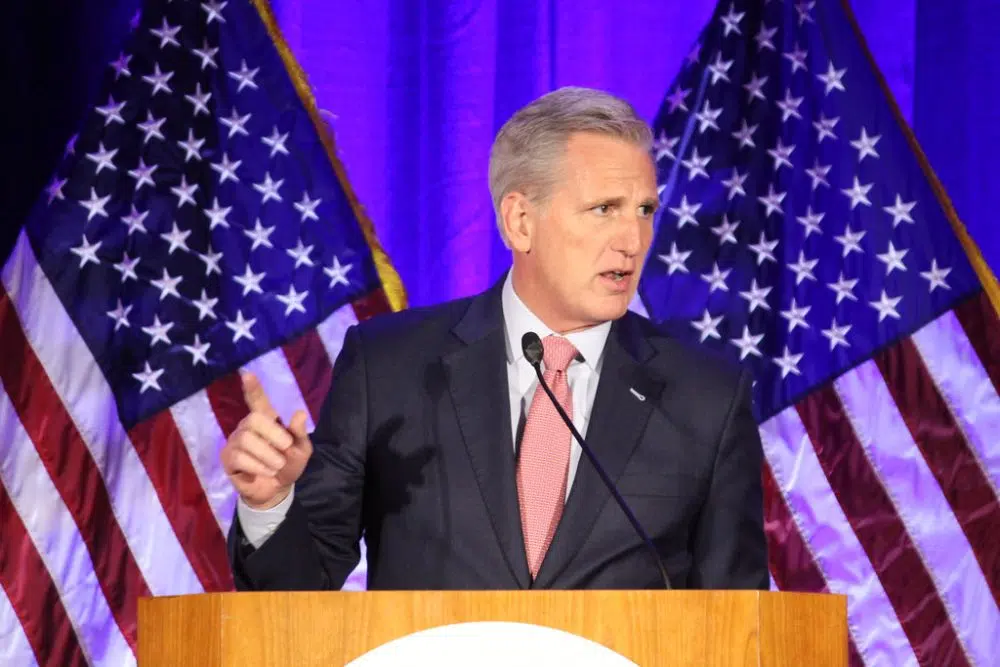PEORIA, Ill. – For a professor at Bradley University, the ouster of California Republican Congressman Kevin McCarthy as Speaker of the House was “historic,” but not too surprising.
Megan Remmel is an Associate Professor of Political Science. She says the removal of McCarthy as Speaker of the House was historic because, while there were numerous attempts in the past to remove someone from the role, Tuesday’s vote was the first time it was successful.
Remmel says a theory called “Conditional Party Government” could have factored into the vulnerability of McCarthy. The theory explains that when a political caucus or party is united, they give their leader more power. But when it’s fractured, which appears to be the case with House Republicans, it’s a different story.
“When they’re internally divided, they actually want a weaker Speaker. Because, they don’t want to be forced into doing things,” Remmel said. “And that’s kind of one of the tools that the Speaker has, as sort of rewards and punishment. And so they want a weaker Speaker because they don’t want to be forced to do things they don’t want to do.”
Remmel says divisions were evident throughout McCarthy’s entire tenure as Speaker, noting the concessions he had to make to get the job, and still needing 15 rounds of votes in January to win it. Because of that, it decreased the chances he would be Speaker for the entire Congressional term.
Remmel says there are short-term and long-term effects of Tuesday’s vote. In the short-term, the House is not in session, and House Republicans will be spending the next week trying to campaign for the job. She says that takes away from trying to put together a bill to fund the government past last week’s continuing resolution, which only funds the government for 45 days.
“So we’re wasting a week, essentially, just on trying to get a new Speaker into place,” Remmel said. “Which, given that we only had six weeks to begin with, is a lot of time.”
Remmel says the long-term effects of in-fighting could include a hit to public opinion to Republicans that they’re better equipped to fix issues, such as the economy and immigration. She says people are more likely to see them not getting along, instead of being the better option.








